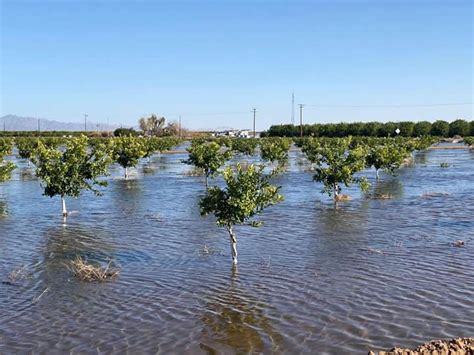Revolutionizing Irrigation With Innovative Tech Solutions
Irrigation has been the backbone of agriculture for centuries, allowing farmers to cultivate crops in areas with limited rainfall. However, traditional irrigation methods have been criticized for their inefficiency and environmental impact. With the increasing demand for food production and the pressing issue of water scarcity, it's essential to adopt innovative tech solutions to revolutionize irrigation.
The Importance of Irrigation
Irrigation is crucial for food security, as it enables farmers to grow crops in areas with inadequate rainfall. According to the Food and Agriculture Organization (FAO) of the United Nations, irrigation accounts for about 70% of global freshwater withdrawals. Irrigation also plays a significant role in supporting economic growth, as agricultural production is a vital contributor to many countries' GDP.
However, traditional irrigation methods have several drawbacks. Flood irrigation, the most common method, can lead to water waste, soil erosion, and salt buildup. Drip irrigation, while more efficient, can be expensive to install and maintain. The lack of precision and control in traditional irrigation systems results in overwatering, underwatering, and reduced crop yields.
The Advent of Innovative Tech Solutions
Recent advancements in technology have given rise to innovative solutions that can transform the irrigation landscape. Some of these solutions include:
Precision Irrigation
Precision irrigation involves using advanced technologies, such as sensors, drones, and satellite imaging, to optimize water application. This approach enables farmers to deliver the right amount of water at the right time, reducing waste and increasing crop yields.

Precision irrigation can be achieved through various methods, including:
- Soil moisture sensing: Sensors are placed in the soil to monitor moisture levels, allowing farmers to adjust irrigation schedules accordingly.
- Weather forecasting: Weather data is used to predict rainfall and adjust irrigation schedules.
- Crop monitoring: Drones and satellite imaging are used to monitor crop health, growth, and water stress.
Drip Irrigation 2.0
Drip irrigation, also known as micro-irrigation, has been around for decades. However, recent advancements have made it more efficient and cost-effective. Modern drip irrigation systems use advanced materials and designs to reduce clogging, increase flow rates, and minimize water waste.

Some of the key features of modern drip irrigation systems include:
- Anti-clogging mechanisms: These mechanisms prevent debris from entering the system, reducing maintenance and increasing flow rates.
- Advanced emitter designs: New emitter designs have improved flow rates, reduced pressure losses, and increased water distribution uniformity.
- Integrated filtration systems: These systems remove impurities and debris from the water, reducing clogging and increasing system longevity.
IoT-Enabled Irrigation Management
The Internet of Things (IoT) has revolutionized various industries, including irrigation management. IoT-enabled irrigation systems use sensors, wireless communication, and data analytics to optimize water application.

IoT-enabled irrigation management offers several benefits, including:
- Real-time monitoring: Sensors and wireless communication enable real-time monitoring of soil moisture, temperature, and other environmental factors.
- Data analytics: Advanced algorithms analyze data from various sources to optimize irrigation schedules and reduce water waste.
- Automated control: IoT-enabled systems can automatically adjust irrigation schedules based on weather forecasts, soil moisture, and crop water stress.
Renewable Energy-Powered Irrigation
Renewable energy-powered irrigation is an innovative solution that reduces the carbon footprint of irrigation. Solar-powered pumps, wind-powered pumps, and biogas-powered generators are some of the alternatives to traditional fossil fuel-powered irrigation systems.

Renewable energy-powered irrigation offers several benefits, including:
- Reduced carbon emissions: Renewable energy-powered irrigation reduces greenhouse gas emissions and contributes to a sustainable environment.
- Energy independence: Farmers can generate their own energy, reducing reliance on grid electricity and lowering energy costs.
- Increased efficiency: Renewable energy-powered irrigation can increase efficiency by reducing energy losses and improving water distribution.
Benefits of Innovative Irrigation Tech Solutions
Innovative irrigation tech solutions offer numerous benefits, including:
- Increased water efficiency: Precision irrigation, drip irrigation, and IoT-enabled irrigation management can reduce water waste and increase crop yields.
- Improved crop quality: Optimized water application can improve crop quality, reduce soil erosion, and increase fertilizer efficiency.
- Reduced energy consumption: Renewable energy-powered irrigation and energy-efficient pumps can reduce energy consumption and lower costs.
- Enhanced sustainability: Innovative irrigation tech solutions can contribute to a sustainable environment by reducing greenhouse gas emissions and conserving water resources.
Challenges and Limitations
While innovative irrigation tech solutions offer numerous benefits, there are challenges and limitations to their adoption. Some of the challenges include:
- High upfront costs: Precision irrigation, drip irrigation, and IoT-enabled irrigation management can be expensive to install and maintain.
- Limited accessibility: Small-scale farmers and those in developing countries may not have access to these innovative solutions due to cost and infrastructure constraints.
- Complexity: IoT-enabled irrigation management and precision irrigation require technical expertise and training.
Conclusion
Innovative irrigation tech solutions are transforming the irrigation landscape, offering numerous benefits, including increased water efficiency, improved crop quality, and reduced energy consumption. While there are challenges and limitations to their adoption, the benefits of these solutions far outweigh the drawbacks. As the world grapples with water scarcity, food security, and climate change, innovative irrigation tech solutions will play a critical role in ensuring a sustainable future.






What is precision irrigation?
+Precision irrigation involves using advanced technologies, such as sensors, drones, and satellite imaging, to optimize water application.
How does IoT-enabled irrigation management work?
+IoT-enabled irrigation management uses sensors, wireless communication, and data analytics to optimize irrigation schedules and reduce water waste.
What are the benefits of renewable energy-powered irrigation?
+Renewable energy-powered irrigation reduces greenhouse gas emissions, increases energy independence, and improves efficiency.
